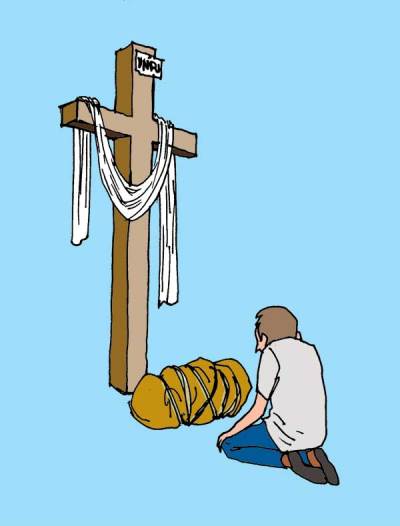Ministers of the Gospel, be careful not to share God's glory

God is using so many of His ministers to do wonders in this present generation, accompanied by miracles and signs. However, I have realized that most often God’s people are no longer focusing their attention on God who does the work but on the pastors who are used by God.
Praise reports in some churches these days are more about the man or woman whom God uses and less about God who is the miracle worker. Such praises if not checked are capable of arrogating undue recognition to human instruments. These praises and references to pastors most often get into the heads of some who see themselves as indispensable in the miracle-working project of God. This is a very dangerous phenomenon and should be carefully avoided by ministers of the Gospel who do not want to be destroyed by pride.
God almighty emphatically stated that He would never share His glory with anyone: “I am the LORD; that is my name! I will not give my glory to anyone else, nor share my praise with carved idols” (Isaiah 42:8). Pastors should be careful of congregations who idolize them and heap praises which belong to God only. No man, no matter the degree of anointing upon his life, is capable of sharing the glory of God. Unfortunately, some are now boasting about the power they have and their ability to do miracles.
There was no record in the Book of Acts where the apostles boasted of their ability to perform miracles. Philip did notable miracles in Samaria, Peter’s shadow healed many, Peter raised Dorcas from death, and Paul performed many signs and wonders. I searched the entire Book of Acts and noticed that none of the apostles boasted about any of these miracles.
Signs and wonders were not advertised. Rather Jesus and Him crucified were preached and more miracles were done by the hands of the apostles. In our meetings today, we advertise miracles, signs, and wonders, and the one who does the miracle is completely neglected. This has made people pursue miracles instead of seeking a relationship with the miracle worker.
Our focus should be to know Jesus, the power of His resurrection, and to have the privilege to partake in the fellowship of His suffering. The humility exhibited by the apostles in Acts is noteworthy. They vehemently rejected every attempt by worshipers to ascribe undue regard to them. In Cornelius’ house, Peter rejected the reverence he received from Cornelius’ household and the people of Caesarea: “And as Peter was coming in, Cornelius met him, and fell down at his feet, and worship him. But Peter took him up, saying, "Stand up; I myself also am a man” (Act 10:25-26). Peter did not want to partake in sharing God's glory; he cautioned Cornelius to stop the worship of him and reminded him that he was a mere mortal. Likewise, Paul and Barnabas demonstrated to the people of Lystra that they were not worthy of worship when the people decided to offer sacrifices to them after they healed a cripple (Acts 14:11-15).
This calls for sober reflection on testimonies that are coming out of many churches today. Borrowing an example from the biblical apostles will help us immensely in adhering to biblical ministerial ethics. Pastors are not gods but mere mortals, and no matter the anointing of God upon anyone’s life, no mortal is qualified to share in God’s glory.
Oscar Amaechina is the president of Afri-Mission and Evangelism Network, Abuja, Nigeria. His calling is to take the gospel to where no one has neither preached nor heard about Jesus. He is the author of the book Mystery Of The Cross Revealed.





















